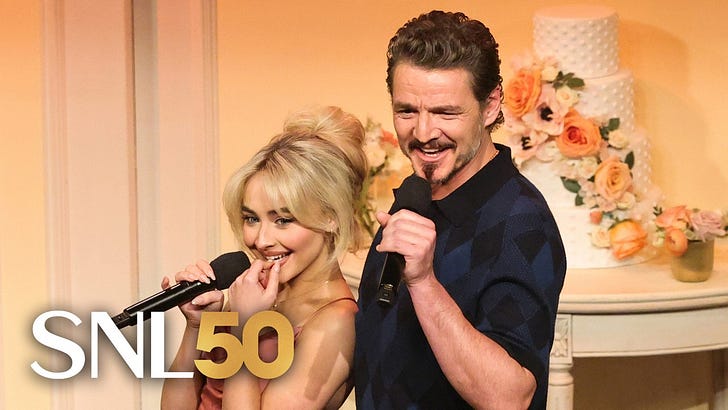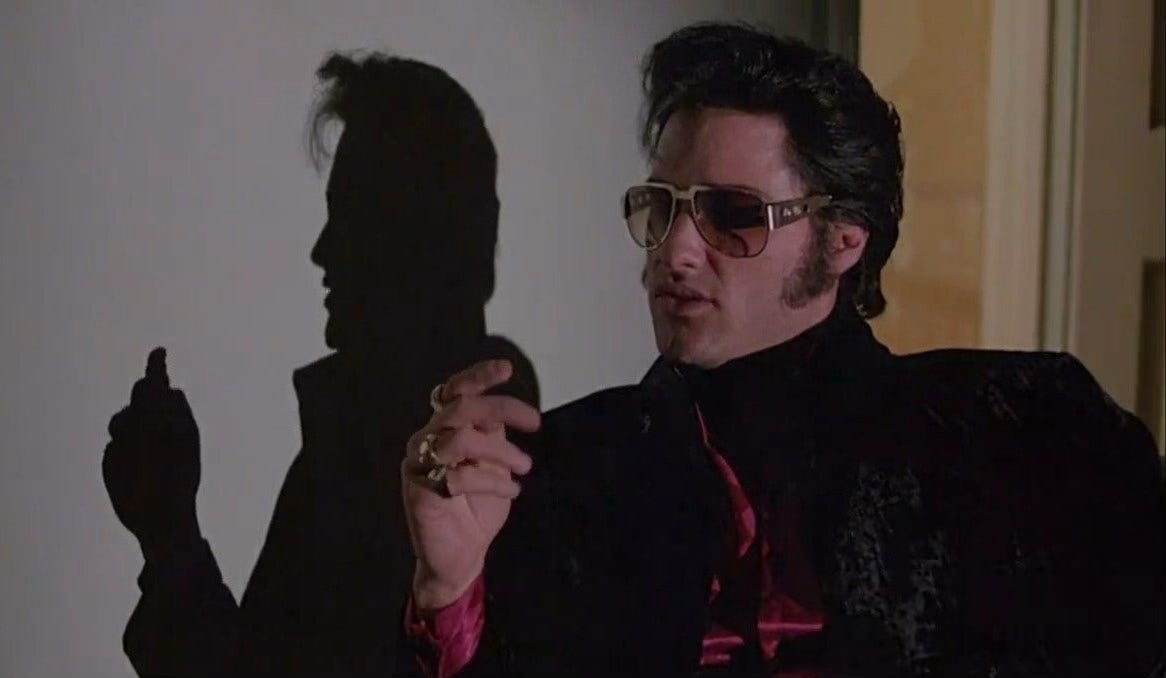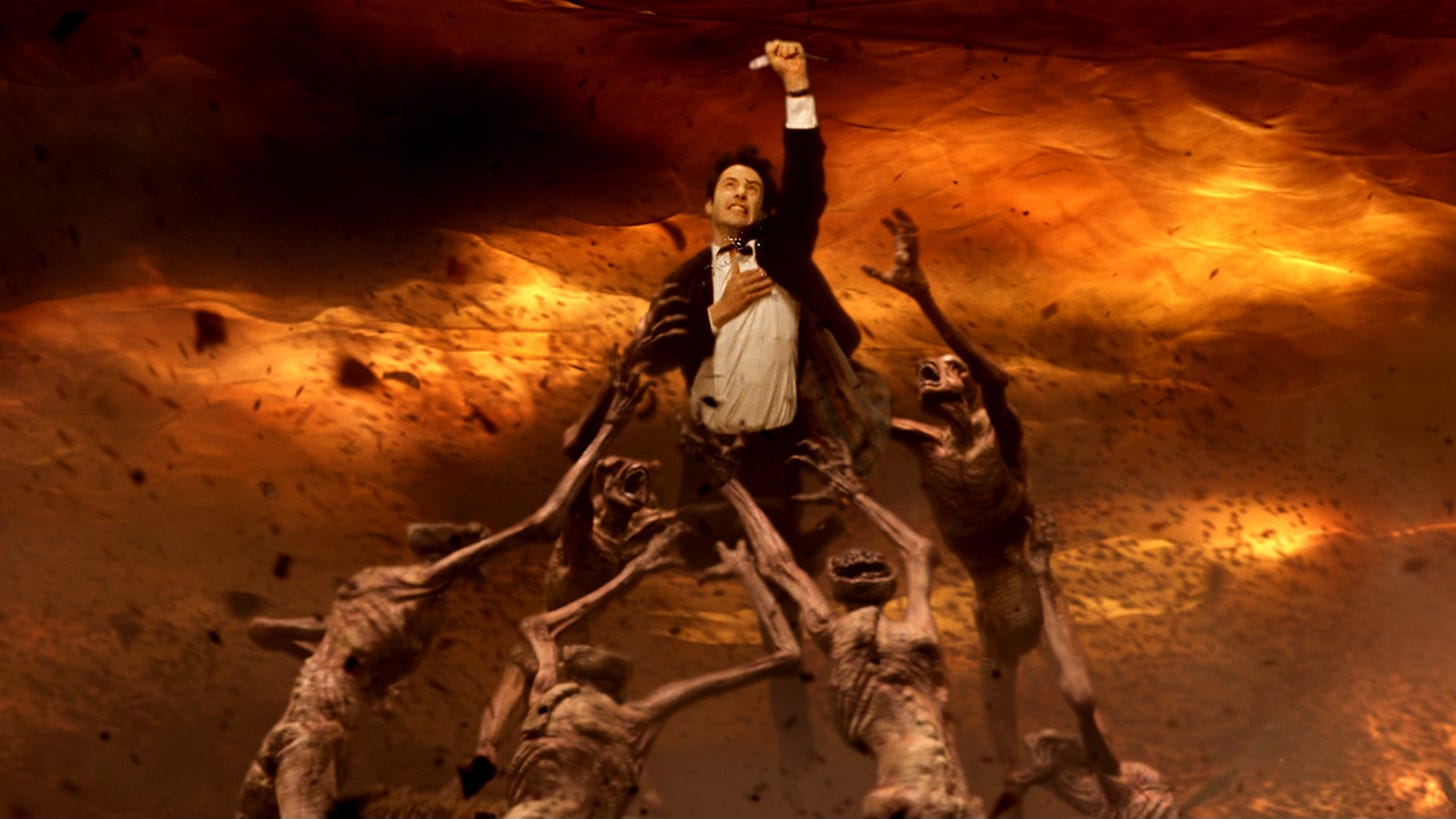
'SNL50' Celebrated a Middling Present Rather Than a Storied Past
Lorne Michaels put a lot of famous people in the same room. Congratulations?
Perhaps asking Saturday Night Live to be at the cutting edge of comedy after fifty years is too tall a task. Any disruptor around for that long will inevitably become an institution, and institutions are typically about maintaining the status quo. The current status quo of SNL is, “Look! Famous people!”
That was abundantly clear at the celebrity-filled SNL50 event this past Sunday. And hey, there’s nothing inherently wrong with a bunch of jokes about and by famous people, especially when they include SNL alums. This “Q&A” portion had a good collection of laughs (although, like almost every sketch in the three-hour broadcast, it went on for way too long).
But leaning heavily on celebrities is what creator and showrunner Lorne Michaels does now. For all its ups and downs, Saturday Night Live is now largely a show with maybe one good sketch for the entire evening and seeing how many famous people you can cram into the cold open. Refining the show into something with better sketches wouldn’t work for its current format of a mad dash throughout the week to barely make it to a live broadcast. As former cast member Bobby Moynihan notes, the show that launched in 1975 was basically built on cocaine. No one does that anymore, but they still run themselves ragged to get a show to air regardless of quality. For Michaels, this is how he gets to the quote, “The show doesn’t go on because it’s ready. The show goes on because it’s 11:30.”
Rather than interrogating that at all, what we’re left with is a show that doesn’t really do anything more than that one funny sketch per week. It doesn’t make headlines (any trenchant political humor was surpassed by better observers like The Daily Show and then Last Week Tonight), and it doesn’t mint stars. Studios don’t make theatrical comedies, and networks don’t make sitcoms. Where exactly are current cast members supposed to go? Maybe you can be like Kyle Mooney and make a comedy for A24, but look at someone like Beck Bennett, who was pretty funny and on the show for eight seasons and…nothing. Even Kate McKinnon, one of the brightest comedy luminaries the show ever produced, doesn’t have the career that Will Ferrell or Eddie Murphy landed.
It doesn’t help that what qualifies as a successful recurring sketch these days is…not good. This is what SNL50 thought best exemplified the current show’s comic sensibilities:
While “The show isn’t good anymore” has been a constant refrain for decades, this isn’t a matter of nostalgia or romanticizing the cast that was on when I was a kid. This is about a three-hour celebration of what amounts to cultural wallpaper. The show has to be celebrated because it’s been around forever, but if you look at what it is at this moment, you have a comedy show that’s best known for who Michaels can book rather than, you know, jokes.
Maybe SNL will improve once Michaels releases his death grip on his creation (judging by this article, he’s immensely powerful and also not particularly well-liked by people who’ve worked on the show), but I doubt it. The show will change, the change will be negatively received because it won’t be like the shade of beige that Michaels produced for decades, and that will be that. In the meantime, sketch comedy will live on, and others who aren’t constrained by Michaels’ biases and idiosyncrasies are doing far better work. Look how many good sketches Key & Peele produced in only five seasons. Tim Robinson came out of SNL as a performer and then a writer, and nothing on SNL in the last decade has captured the culture like the weird, oddly quotable sketches in Robinson’s Netflix show I Think You Should Leave.
Lorne Michaels is 80 years old. If there’s an SNL60, he likely won’t be around for it. But if the show is only about being well-connected enough to put famous people into middling sketch comedy, then perhaps it will be fine without him. As the night’s best performance showed, it’s better to celebrate the show and performers of years past rather than the star-studded affair it seeks to be now.
What I’m Watching
I don’t know what I’ll do if Atlanta’s local video store, Videodrome, ever goes away. They’re an institution, and their selection, as well as their knowledgeable staff, is indispensable. I also need them if there are movies I want to see that aren’t available on streaming. This past weekend, I watched three such films I rented from Videodrome: Francis Ford Coppola’s 1966 sex comedy You’re a Big Boy Now, David O. Russell’s debut feature Spanking the Monkey, and John Carpenter’s 1979 TV movie Elvis, which marked his first collaboration with Kurt Russell.
It’s not that any of these movies are great (I have more on each on my Letterboxd), but they’re worth seeing to better understand the larger arc of the directors’ filmographies. I also didn’t intend for all three movies to feature sons who are unusually close to their mothers, but that’s how it shook out.
What I’m Reading
I finished reading Batman ‘89, and while I’m not sure it would have made a great third entry into the Tim Burton Batman movies, it’s at least interesting. It suffers from a problem that other superhero movies make, which is that it’s way too crowded. It not only brings back Catwoman but also features Two-Face, a pre-Batgirl Barbara Gordon, and Robin. And yet I do like that Sam Hamm’s story, with the virtue of casting a Black actor to play Harvey Dent in the original Batman (Billy Dee Williams), takes the concept further by exploring racial inequality, and asks how Batman would address such an issue or if he could only make it worse.
Of course, had this been a real movie, there’s no way the racial aspects would have made it to the screen. Look at how watered down the recent Captain America movie is concerning race. A film like Black Panther is the exception, and I’m not sure any other superhero movie dares to try being racially conscious because apparently being called “woke” is now the worst thing you can say about something (although I can certainly think of some worse names some people have been called in the history of our country).
I’ll also quickly plug my own work: For Letterboxd, I had the chance to talk with director Francis Lawrence for the 20th anniversary and 4K Blu-ray release of Constantine. I saw this film in theaters back in 2005, and I went in thinking it would be a dud given how much it departed from the source material in casting Keanu Reeves as the lead rather than a British guy. Instead, Lawrence and Reeves blew me away with a potent blend of horror and noir. It was great to discuss the project’s genesis, development, and legacy as well as what Lawrence hopes to accomplish with a sequel.
In other reads:
JD Vance is Merely the Latest Conservative Christian to Use Nazi Camps to Cleanse His Antisemitism Sins by Joel Swanson [Religion Dispatches] - I don’t know if the people who oversee concentration camps have it in their authority to tell a powerful figure, “You can’t do your photo op here,” but I wish they would. As this article points out, figures like J.D. Vance and Elon Musk spend their time cozying up with Holocaust deniers and white supremacists who openly loathe Jews, and then try to take a photo at Auschwitz or Dachau to…what? Swanson argues that these figures are looking for “instant redemption,” but I’d counter that those looking for redemption at least believe they’ve done something wrong. Vance and Musk are far more cynical than that. The visit is a nod towards the mainstream value that genocide is bad while winking at their true allies who aspire to make America a white ethnostate.
JD Vance’s Debacle in Germany Exposes MAGA’s Sinister Global Endgame [The New Republic] - Following up on that, Vance is clearly a fan of fascism, which is why he supports the fascist Alternative fur Deutschland (AfD) in Germany and refused a meeting with the sitting chancellor. Jon Stewart may not like people tossing around the word “fascist,” but whether you want to call it authoritarianism or autocracy, the current view of the American government is anti-democratic. You don’t invite Musk and his goons to kill federal grants and fire public servants if you think that representative government is legitimate. It is a top-down view where those with wealth and white skin tell you what you deserve, and if you don’t like it, you should learn your place.
It’s never been more important to stay tuned in by Margaret Sullivan [The Guardian] - I typically agree with everything Sullivan says, but here I’m a bit more skeptical. I think she’s right that you can’t cede everything to those in power, but I also feel like you can’t stay constantly plugged in, or you’ll go mad. Also, let’s be honest: part of the reason Trump got reelected is because a lot of people don’t pay attention. There’s a bizarre power in being so tuned out that you only accept easy narratives (a weird thing about Trump voters is they imagine him to be things he obviously isn’t), and the fact that I know the latest assault on our government doesn’t make me feel more powerful or engaged any more than being close to a tornado gives me the power to stop it. I can do my best to get out of its way, but there are limits to observing its path of destruction.
What I’m Playing
I have put Sleeping Dogs to bed. It’s an above-average Grand Theft Auto imitator, and it’s kind of a shame that it never got a sequel. The DLC isn’t amazing, but the core gameplay works, and as I’ve said before, I’m kind of annoyed this brand of game dried up, leaving GTA as the only real option. I am curious what GTAVI will look and play like (will there still be radio channels while you’re driving, or will there now be podcasts?), but I wish some other major studio tried to step up with a competitor.
I’ve now moved on to Dredge, a fairly chill game where you fish, look for treasure, and avoid Lovecraftian horrors.











